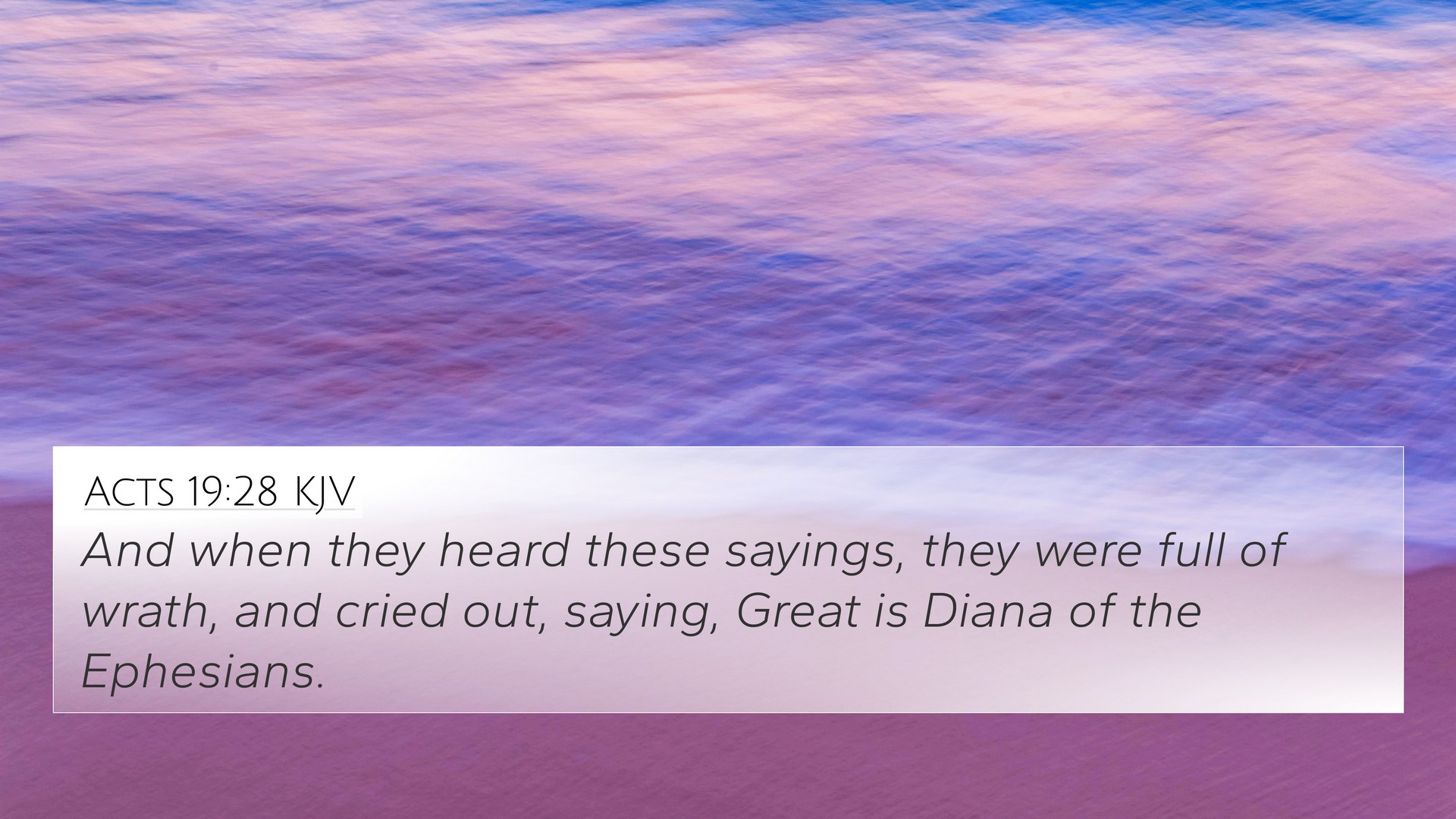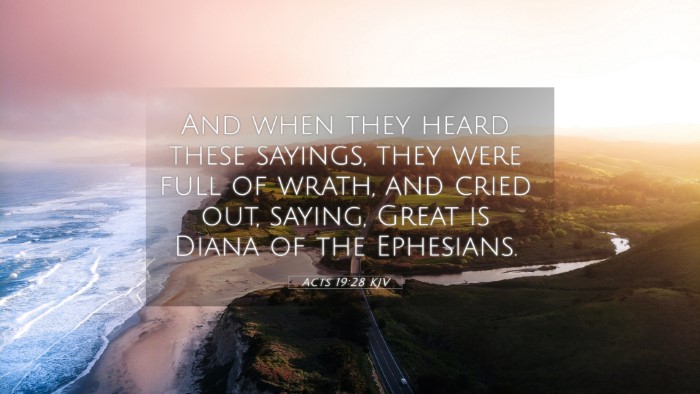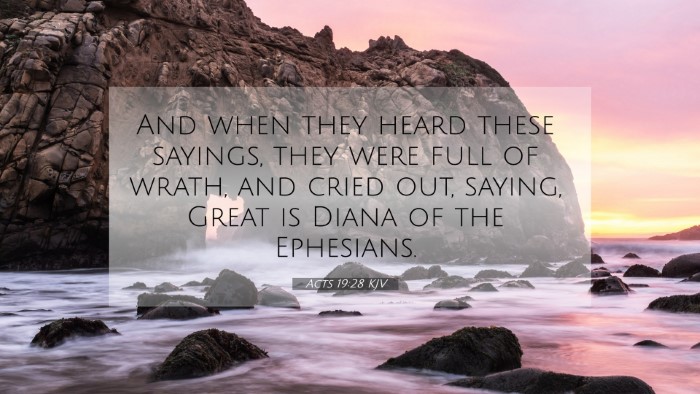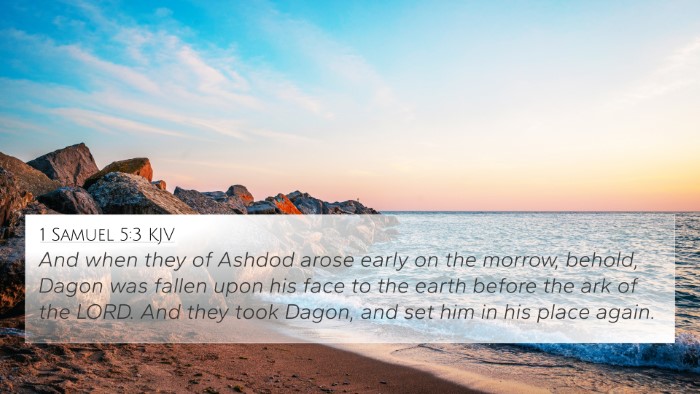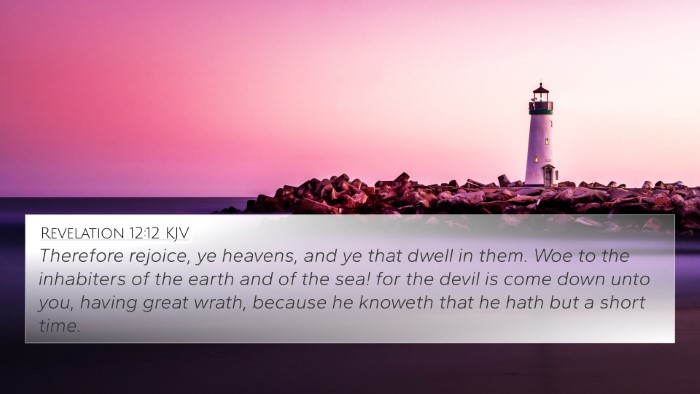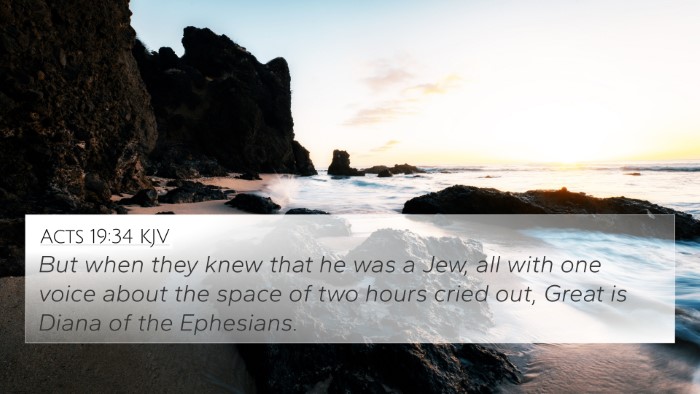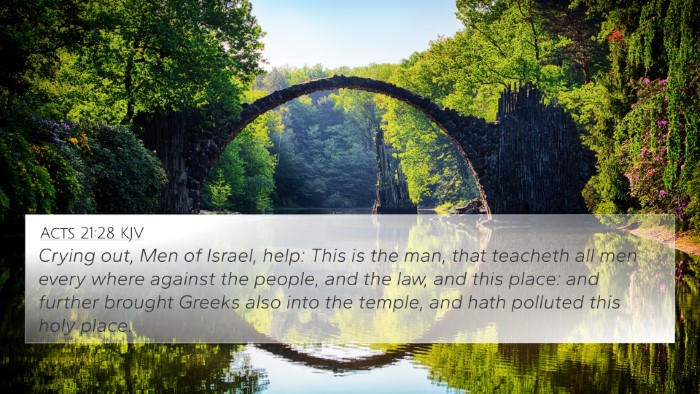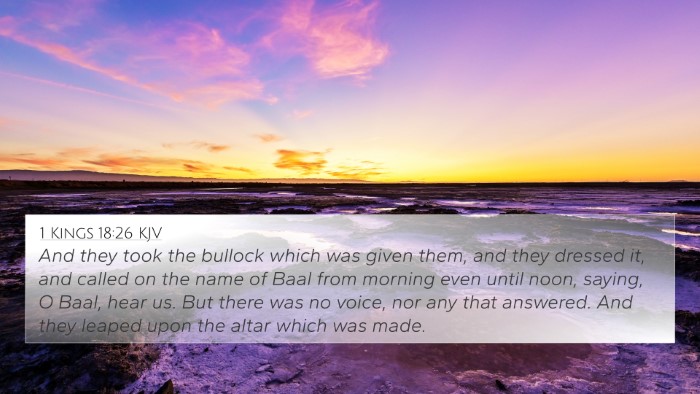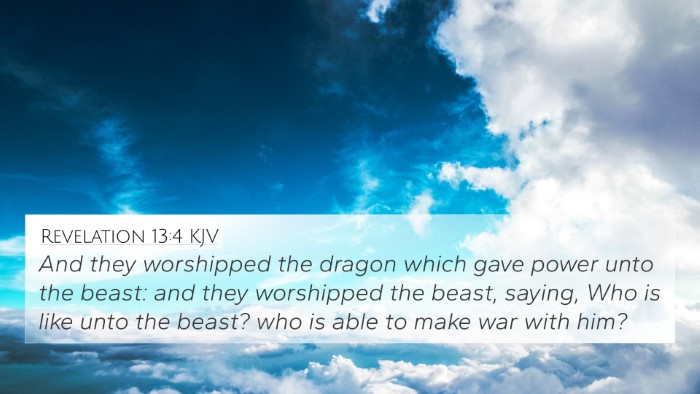Understanding Acts 19:28
Acts 19:28 states, "When they heard this, they were filled with rage and began crying out, saying, 'Great is Artemis of the Ephesians!'" This verse captures a pivotal moment in the early Church's conflict with pagan worship, specifically focusing on the worship of Artemis in Ephesus. Various public domain commentaries provide valuable insights into the significance of this verse and the broader context surrounding it.
Context and Significance
The background of this passage is rooted in the Apostle Paul's missionary journey where he preached against idolatry. The riot in Ephesus represents a visceral reaction to the diminishing influence of idol worship due to Paul's teachings. This incident showcases the clash between the burgeoning Christian faith and traditional pagan beliefs.
Commentary Insights
-
Matthew Henry emphasizes the intense emotional response of the crowd, illustrating the deeply entrenched cultural and religious practices of Ephesus. They saw Paul’s message as a threat to their livelihood and way of life, leading to their outcry for the goddess Artemis.
-
Albert Barnes notes that the outcry “Great is Artemis of the Ephesians” became a rallying cry that revealed the power dynamics at play. The citizens of Ephesus felt a need to defend their goddess, indicating how religion was intertwined with their identity and community cohesion.
-
Adam Clarke points out the irony of their rage; while they believed they were defending their goddess, their actions exposed the fragility of their beliefs and the volatility of idolatry in the face of Truth as preached by Paul.
Related Bible Verses and Cross-References
To fully grasp the implications of Acts 19:28, we can consider several related scriptures that provide theological depth and cross-reference connections:
- Exodus 20:3-5 - God's commandment against idolatry speaks to the fundamental issue addressed in Acts 19.
- 1 Corinthians 8:4-6 - Paul discusses the knowledge of idols as nothing, which reflects his stance during the Ephesus incident.
- Revelation 2:1-7 - Highlights the challenges faced by the church in Ephesus, a city fundamentally shaped by its idolatry.
- Jeremiah 10:14 - A powerful condemnation of idol makers, paralleling the rejection of Artemis with a prophetic tradition.
- Acts 17:16 - Paul’s earlier encounter in Athens mirrors the idolatry witnessed in Ephesus.
- Romans 1:25 - Speaks to the exchange of truth for lies, resonating with the fervor of the Ephesians in defending their false gods.
- Matthew 4:10 - Jesus’ rejection of worship toward Satan aligns with the theme of true worship versus false idols.
Thematic Bible Verse Connections
The passage of Acts 19:28 profoundly illustrates the conflict between the gospel of Jesus Christ and the cultural expressions of idolatry. Various themes emerge from this narrative:
-
Idolatry vs. True Worship: This theme is central to understanding the uproar in Ephesus, demonstrating how God's truth often collides with human constructs of spirituality.
-
Community Reaction to Change: The emotional outburst of the crowd signifies how deeply collective identity can be tied to religious expressions, leading to resistance against transformative messages.
-
The Power of the Gospel: Despite the fierce opposition, the account in Acts showcases the unstoppable force of the gospel. It serves as a reminder of how truth prevails amidst resistance.
Conclusion
Acts 19:28 serves as a sobering reminder of the challenges faced by early Christians in a world dominated by idolatry. Through the insights of Matthew Henry, Albert Barnes, and Adam Clarke, readers can glean a deeper understanding of the spiritual battles that continue today. By cross-referencing with other Biblical texts, believers can gain a more profound understanding of idolatry’s ongoing relevance and the importance of anchoring one’s faith in the truth of God's Word.
Tools for Further Study
To explore these themes further, consider utilizing tools such as a Bible concordance or a Bible cross-reference guide. These resources can enhance your Bible study by providing a systematic approach to cross-referencing Biblical texts and discovering thematic Bible verse connections.
